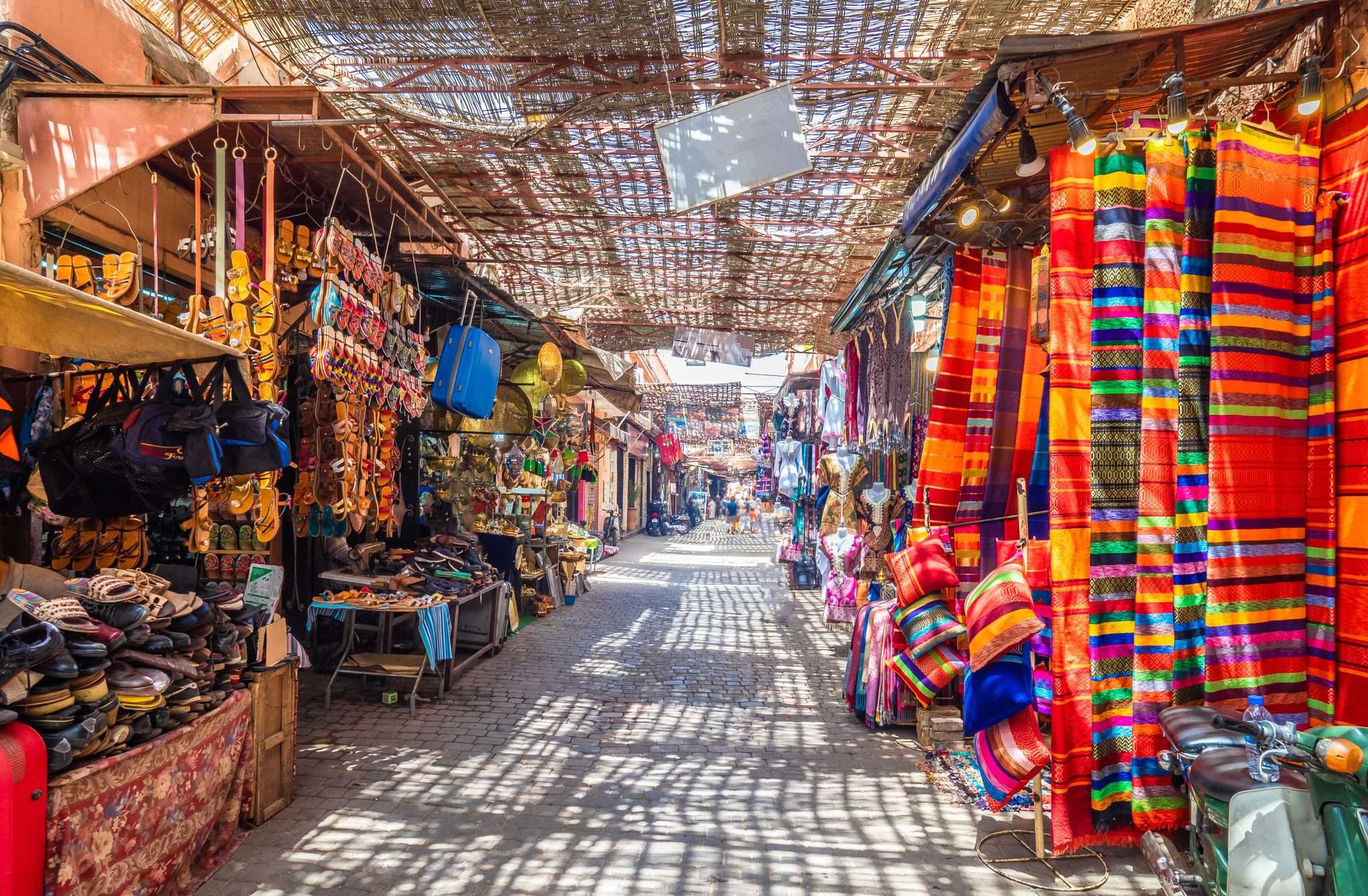How to Bargain Like a Local in Moroccan Markets
Bargaining, or “haggling,” is a central part of shopping in Moroccan markets, known as souks. For travelers, it can be a fun and rewarding experience, but it also requires understanding the unwritten rules. Locals expect bargaining, and if you don’t negotiate, you may end up paying much more than the actual value of an item. Here’s a guide to help you bargain like a local in Moroccan souks and get the best deals on your purchases.
1. Do Your Research
Before heading to the souks, familiarize yourself with the general price range of items you want to buy. Whether it’s pottery, rugs, or spices, knowing the average cost will help you assess whether the initial asking price is fair. You can get a sense of prices by asking around at different stalls or checking fixed-price shops.
- Tip: Visit cooperative stores or government-run shops to see non-negotiable prices for comparison.
2. Be Polite and Friendly
Bargaining in Morocco is as much about building rapport as it is about negotiating a price. Start with a friendly greeting like “Salam Alaikum” (peace be upon you) and engage the seller in casual conversation. Compliment the quality of their goods, ask about their day, or inquire where the item was made. Establishing a good relationship can lead to better deals.
- Tip: Smiling, being polite, and maintaining a friendly demeanor go a long way in Moroccan bargaining culture.
3. Let the Seller Start with the First Offer
Never start by giving your own price. Always ask the seller for the initial price. This is their “starting point,” and it’s often higher than what they actually expect to receive. From here, you can begin the process of lowering the price to one that’s more reasonable.
- How to Ask: Simply say, “Bi-ch-hal?” (How much?) to ask for the price.
4. Make a Counteroffer
Once the seller quotes the price, counter with an offer that is about 50% less than the original price. Bargaining is expected, and the seller will rarely agree to your first offer, so be prepared to go back and forth. This is part of the process, and both sides will eventually settle on a price somewhere in the middle.
- Tip: Be realistic—don’t offer an insultingly low price. Aim for a price that is fair to both you and the seller.
5. Know When to Walk Away
If the price isn’t going down to your desired level or if you’re not satisfied with the deal, walk away. Sellers will often call you back with a better offer once they realize you’re serious about leaving. This tactic shows them you’re not afraid to walk away, giving you more negotiating power.
- Tip: If the seller lets you walk away, that’s a sign the price has reached its bottom. At that point, you can either accept it or move on to another stall.
6. Use Silence to Your Advantage
Sometimes, after giving a counteroffer, it’s best to remain silent and let the seller think it over. Silence creates a sense of tension, and the seller may be more likely to lower their price to fill the void. Patience is key in this stage, so don’t feel rushed to respond.
7. Show Genuine Interest but Don’t Overcommit
Express interest in the item without appearing desperate to buy it. If a seller sees that you’re too eager, they may hold firm on a higher price. Instead, give the impression that you’re interested but willing to walk away if the price isn’t right.
- Tip: If you’re interested in multiple items from the same vendor, try to negotiate a bulk discount.
8. Carry Small Bills
When you’ve agreed on a price, it’s helpful to have the exact amount ready to avoid any confusion or requests for more money. Sellers may claim they don’t have change for larger bills, so having small bills on hand will allow you to complete the transaction smoothly.
- Tip: Always keep your money secure and be cautious when handling large sums.
9. Be Aware of the Exchange Rate
If you’re using foreign currency or paying with dirhams, make sure you know the current exchange rate. Some sellers may quote prices in euros or dollars, but they might not always offer a favorable exchange rate. Doing a quick calculation or using a currency converter app can help ensure you’re getting a fair deal.
10. Understand Local Etiquette
In Moroccan culture, bargaining is not just about getting the best deal, it’s also about showing respect and understanding local customs. Don’t get frustrated or angry during negotiations, as this can be seen as disrespectful. Even if the deal doesn’t go through, thank the seller and part ways on good terms.
11. Know What You Want to Buy
Have a clear idea of what you’re looking for before you start shopping. Souks are filled with an overwhelming variety of goods, from colorful textiles to hand-carved wooden items. By knowing what you want, you can focus on negotiating for those specific items rather than getting sidetracked.
- Popular Items in Moroccan Souks:
- Rugs and carpets
- Leather goods (bags, shoes, jackets)
- Handicrafts and pottery
- Jewelry and metalwork
- Spices and teas
12. Practice Makes Perfect
The more you bargain, the better you’ll become at it. Don’t be afraid to test your bargaining skills in different stalls and with different vendors. With each interaction, you’ll gain more confidence in negotiating.
Bonus: Bargaining Phrases to Use
Learning a few key phrases in Moroccan Arabic (Darija) can help you build rapport with sellers and negotiate more effectively:
- “Bi-ch-hal?” – How much?
- “Nqass shwiya” – Lower the price a bit.
- “Liha ntaqoul ghali” – That’s too expensive.
- “Khallas” – That’s enough (final offer).
- “Shukran” – Thank you.
Conclusion
Bargaining in Moroccan markets can be an exciting and rewarding experience. It’s more than just a transaction—it’s an opportunity to connect with locals, immerse yourself in the culture, and get great deals on unique items. With patience, politeness, and a good sense of humor, you can navigate the art of negotiation like a true local.





